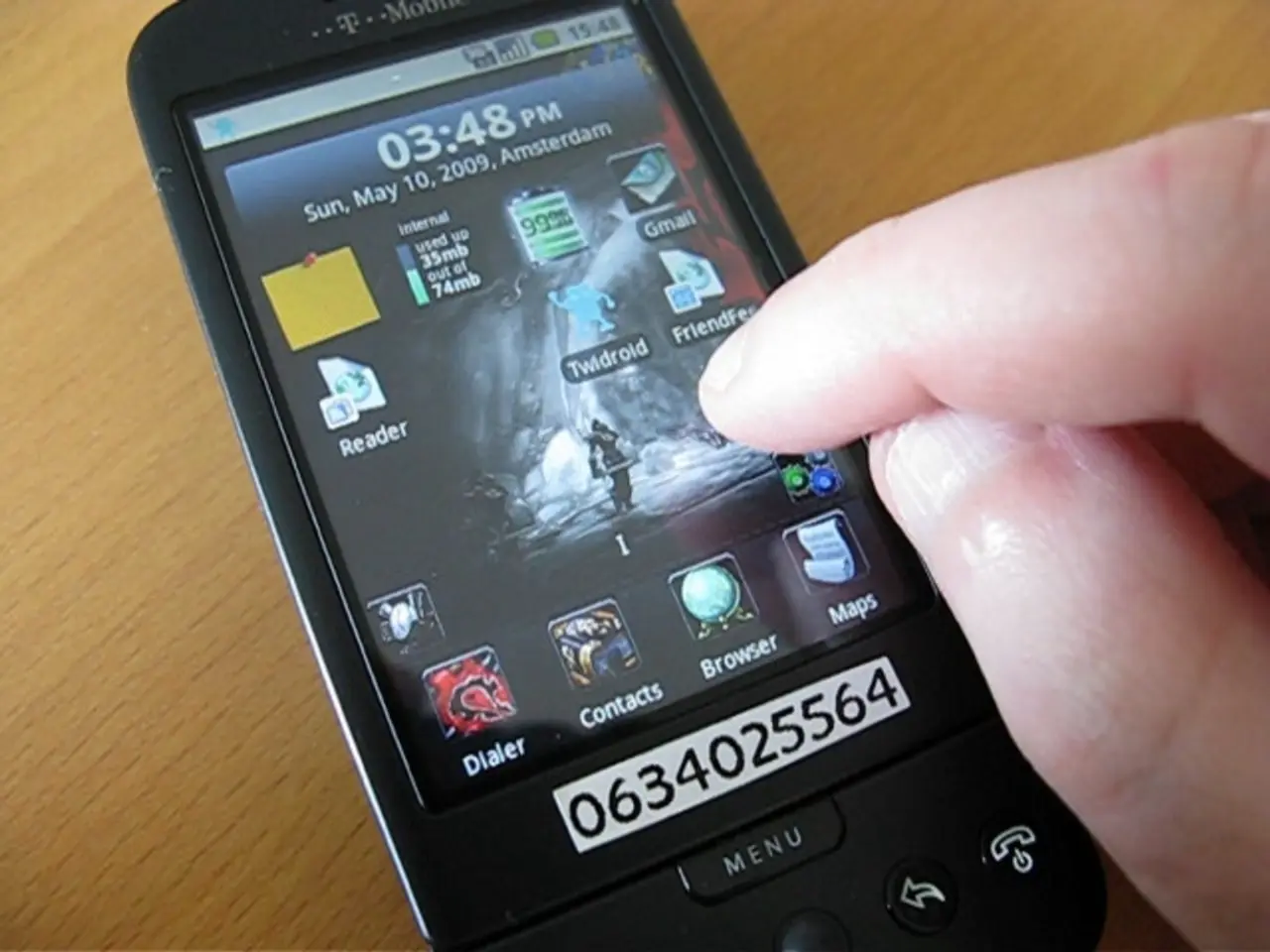Unheeded Notice from FBI: Avoid Fielding These Calls on Your Mobile Device
**Headline:** Beware of Law Enforcement Impersonation Scams Targeting Smartphone Users
In recent times, a concerning trend has emerged as scammers impersonate law enforcement officers and government agencies, targeting smartphone users with a variety of tactics. Awareness of these methods is crucial to protect yourself from falling victim to these scams.
### Common Tactics Used in Law Enforcement Impersonation Scams
Scammers often exploit technology by using caller ID spoofing to make calls appear as though they are coming from legitimate law enforcement or government numbers [2][3]. They may claim to be from Homeland Security Investigations, local sheriff’s offices, or even the FBI, to seem authentic.
Once they have gained a victim's trust, scammers may threaten them with arrest, warrants, or other legal consequences to pressure them into compliance [3]. They may also demand immediate payment via untraceable methods such as wire transfers, gift cards, cryptocurrency, or payment apps [1][3].
Scammers often phish for personal information, asking for sensitive details like Social Security numbers, driver’s license numbers, or financial information, which can lead to identity theft [1][2]. They may provide fake names, badge numbers, or government agency titles to appear legitimate [1][3]. Some impersonators may even ask for remote access to your smartphone or computer under the guise of investigating fraud, which can lead to malware installation or data theft [4].
### How Individuals Can Protect Themselves
To avoid falling victim to these scams, it is essential to be vigilant. Never trust unsolicited calls or messages from individuals claiming to be law enforcement officers or government agencies. Legitimate agencies will never call, text, or message out of the blue to demand money or sensitive information [1][3].
Do not provide personal information or payment when faced with such calls. Legitimate agencies do not demand immediate payment via gift cards, cryptocurrency, or wire transfers [1][3]. If you are unsure about the legitimacy of a call, hang up and call the official agency directly using a publicly listed number to confirm any claims [3].
Avoid clicking on suspicious links in unexpected texts or emails, as they may lead to counterfeit websites designed to steal your data or install malware [1]. If you suspect a scam, report it to your local law enforcement, the Federal Trade Commission (FTC), or relevant agencies such as Homeland Security’s Office of Inspector General [1][2].
Stay informed about scam tactics and warnings by following official government communications [1][2]. By recognizing these common tactics and following these protective steps, smartphone users can greatly reduce their risk of falling victim to law enforcement impersonation scams.
In the U.S., the FTC recently reported a 25% year-over-year increase in reported losses to fraud [5]. The FTC has also been targeted in impersonation scams, warning of "fraudulent activity on Apple ID" [6]. Phone numbers can be spoofed, making it easy for scammers to gain a victim's confidence [7].
The FBI warns that callers trick victims into thinking an arrest is imminent unless they send money, which does not happen [8]. New York State Police has alerted citizens to an ongoing phone spoofing scam where scammers impersonate members of law enforcement or government agencies [9]. Attacks are now being amplified with similar alerts from ATF and U.S. Marshals [10].
During the holiday weekend, there has been a new wave of attacks targeting smartphone users, as initially warned by the FBI in June [11]. The FBI, ATF, and other law enforcement agencies urge citizens to remain vigilant and report any suspicious calls or messages.
Sources: [1] Federal Trade Commission: [https://www.consumer.ftc.gov/articles/0248-impersonation-scams](https://www.consumer.ftc.gov/articles/0248-impersonation-scams) [2] Federal Bureau of Investigation: [https://www.ic3.gov/media/2021/210614.aspx](https://www.ic3.gov/media/2021/210614.aspx) [3] Federal Communications Commission: [https://www.fcc.gov/consumers/guides/spoofing-and-caller-id-scamming](https://www.fcc.gov/consumers/guides/spoofing-and-caller-id-scamming) [4] Federal Trade Commission: [https://www.consumer.ftc.gov/articles/0489-tech-support-scams](https://www.consumer.ftc.gov/articles/0489-tech-support-scams) [5] Federal Trade Commission: [https://www.ftc.gov/news-events/press-releases/2021/01/ftc-reports-25-year-over-year-increase-reported-losses-fraud](https://www.ftc.gov/news-events/press-releases/2021/01/ftc-reports-25-year-over-year-increase-reported-losses-fraud) [6] Federal Trade Commission: [https://www.ftc.gov/news-events/press-releases/2021/02/ftc-warns-about-impersonation-scams-targeting-apple-id-accounts](https://www.ftc.gov/news-events/press-releases/2021/02/ftc-warns-about-impersonation-scams-targeting-apple-id-accounts) [7] Federal Trade Commission: [https://www.ftc.gov/news-events/press-releases/2021/03/ftc-warns-about-impersonation-scams-targeting-apple-id-accounts](https://www.ftc.gov/news-events/press-releases/2021/03/ftc-warns-about-impersonation-scams-targeting-apple-id-accounts) [8] Federal Bureau of Investigation: [https://www.ic3.gov/media/2021/210614.aspx](https://www.ic3.gov/media/2021/210614.aspx) [9] New York State Police: [https://www.troopers.ny.gov/press-releases/2021/07/new-york-state-police-warns-public-about-ongoing-phone-spoofing-scam](https://www.troopers.ny.gov/press-releases/2021/07/new-york-state-police-warns-public-about-ongoing-phone-spoofing-scam) [10] Federal Bureau of Investigation: [https://www.ic3.gov/media/2021/210614.aspx](https://www.ic3.gov/media/2021/210614.aspx) [11] Federal Bureau of Investigation: [https://www.ic3.gov/media/2021/210614.aspx](https://www.ic3.gov/media/2021/210614.aspx)
FBI urges all smartphone users to delete any suspicious texts they receive, as they might be part of a law enforcement impersonation scam. To stay secure in our technology-driven world, it's essential to follow general-news and cybersecurity updates related to crime-and-justice, such as the current warning from the FBI about scam alerts.




